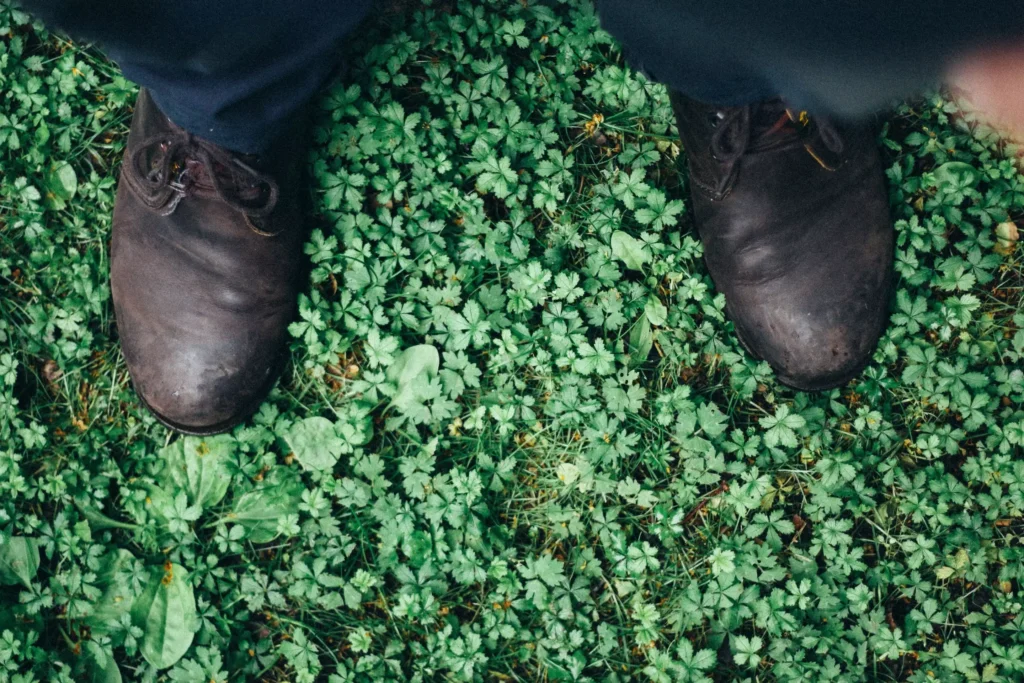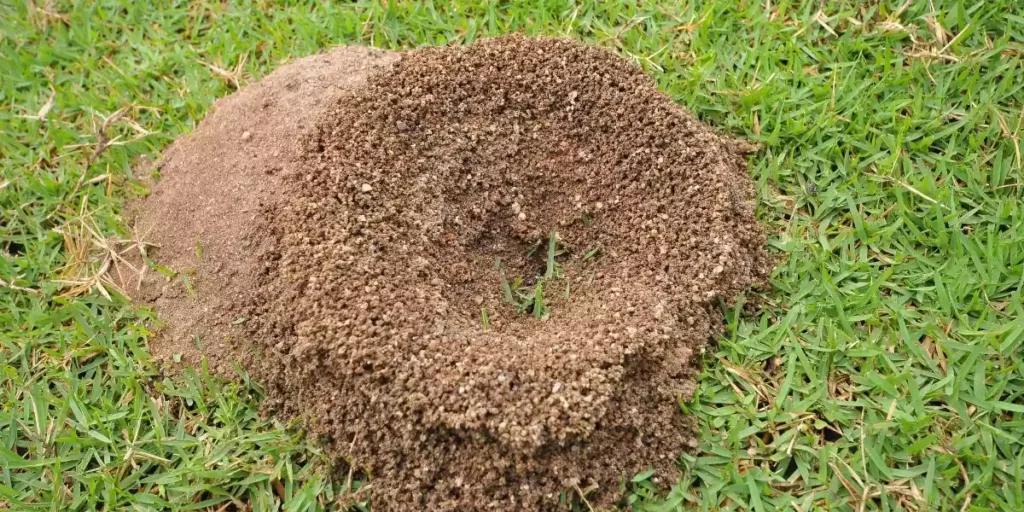As a gardener, I am always looking for ways to nourish my plants and promote healthy growth. One of the most effective ways I have found to do this is through the use of worm castings. These nutrient-rich composts are produced by earthworms through the process of vermicomposting, and they are packed with a wide variety of essential nutrients and minerals that plants need to thrive.
In this article, I will be exploring the many nutrients that worm castings provide and how they can benefit your garden. From nitrogen and phosphorus to calcium and sulfur, worm castings contain a wealth of nutrients that can help improve soil structure, promote healthy plant growth, and even prevent certain plant diseases and insect pests.
So whether you are an experienced gardener or just starting out, read on to learn more about the amazing benefits of worm castings for your garden.
What Nutrients Do Worm Castings Have?
You’ll be amazed at the plethora of essential minerals and nutrients that your plants can soak up from this natural and powerful fertilizer made by those amazing little creatures known as earthworms. Worm castings contain concentrated nitrates, phosphorus, magnesium, potassium, calcium, manganese, copper, zinc, cobalt, borax, iron, carbon, and nitrogen. These nutrients are easily and immediately absorbed by plants, making worm castings the richest natural fertilizer known to humans.
In addition to these essential minerals and nutrients, worm castings contain over 50% more humus than topsoil. Humus is a critical component of soil health, as it helps to enhance the soil’s ability to retain water and inhibit root diseases.
Worm castings also extract toxins and harmful fungi and bacteria from soil, fight off plant diseases, and act as a barrier to help plants grow in soil with extreme pH levels. By increasing the soil’s ability to retain water and reducing acid-forming carbon in soil while increasing nitrogen levels, worm castings are a natural and pesticide-free option for gardening.
The Benefits of Using Worm Castings?
I’ve learned that using worm castings can make soil more absorbent, which is great for plants that need consistent moisture.
Additionally, worm castings improve germination and seedling growth, which is ideal for gardeners who want to get their plants off to a strong start.
These castings also curb certain plant diseases and pests by introducing beneficial microbes, and speed up the composting process while helping to remove heavy metals from soil and improve soil structure.
Makes Soil More Absorbent
With worm castings, your soil will become a sponge, soaking up water like a thirsty millennial on a hot summer day. This is because worm castings enhance the soil’s ability to retain water, improving soil structure and absorbency.
When soil is too compact, water cannot penetrate it, leading to runoff and erosion. However, worm castings increase soil porosity, allowing water to seep in and nourish roots. This not only benefits plants, but also helps prevent water waste and runoff.
In addition to improving soil absorbency, worm castings also introduce beneficial microbes and bacteria to the soil. These microorganisms help break down organic matter, releasing nutrients and minerals that plants need to thrive.
By improving soil structure and introducing beneficial microorganisms, worm castings create a healthy and vibrant ecosystem in your garden. So, if you want to improve your soil’s absorbency and overall health, try adding some worm castings to your gardening routine.
Improves Germination and Seedling Growth
Adding worm castings to your garden can enhance the growth and development of seedlings and improve the success rate of germination. The nutrients and minerals found in worm castings, such as concentrated nitrates, phosphorus, magnesium, potassium, and calcium, provide an optimal environment for seedlings to thrive. The humus in worm castings also helps to retain moisture, which is essential for seed germination and growth.
When mixed with soil, worm castings act as a natural fertilizer that is absorbed easily and immediately by seedlings, promoting their healthy development. Not only do worm castings provide essential nutrients for seedlings, but they also introduce beneficial microbes, bacteria, and fungi to the soil. These microorganisms help to break down organic matter and make nutrients more available to plants.
Additionally, worm castings contain plant growth hormones that stimulate root development and increase overall plant health. By using worm castings in your garden, you can give your seedlings the best possible start and set them up for success throughout their growth cycle.
Curbs Certain Plant Diseases and Pests
You can prevent certain plant diseases and pests by using worm castings in your garden. For example, a gardener in Florida used worm castings to protect her tomato plants from fungal diseases and noticed a significant decrease in the number of diseased plants compared to previous years.
This is because worm castings contain beneficial microbes, bacteria, and fungi that boost the plant’s immune system and protect them from harmful pathogens. These beneficial microorganisms also break down organic matter in the soil, releasing nutrients that the plants can easily absorb.
In addition to preventing diseases, worm castings can also repel certain pests. The strong earthy smell of worm castings is known to deter insects such as aphids, spider mites, and whiteflies. The nutrients in the castings also make the plant healthier and more resistant to pests and diseases.
By using worm castings in your garden, you can create a healthy and thriving ecosystem for your plants, while also reducing the need for harmful pesticides and chemicals.
Introduces Beneficial Microbes
Using worm castings in your garden introduces helpful microbes that can boost plant immunity and protect against harmful pathogens, creating a healthy and thriving ecosystem for your plants. These microbes include beneficial bacteria, fungi, and protozoa that enhance soil fertility and promote plant growth.
The presence of these microbes in worm castings can help plants absorb nutrients more efficiently and produce stronger and more resilient roots. One of the most important beneficial microbes found in worm castings is mycorrhizal fungi.
These fungi form a symbiotic relationship with plant roots, extending their reach and helping them absorb water and nutrients from the soil. Mycorrhizal fungi also produce compounds that increase soil aggregation and improve soil structure, making it easier for plant roots to penetrate and grow.
By introducing these helpful microbes to your garden through worm castings, you can create a healthy and self-sustaining environment for your plants to thrive.
Speeds Composting Process
Speeding up the composting process is just one of the benefits of incorporating worm castings into your garden. When added to a compost pile, worm castings provide a rich source of organic matter that helps to break down other materials faster. This is due to the high levels of beneficial microbes, bacteria, and fungi present in the castings.
Here are some ways worm castings can speed up the composting process:
- Increases microbial activity: The microbes in worm castings help to break down organic matter faster, which speeds up the composting process.
- Provides essential nutrients: The nutrients in worm castings help to feed the microbes in the compost pile, which in turn helps to break down the other materials faster.
- Improves soil structure: The humus in worm castings helps to improve soil structure, which allows for better aeration and water retention in the compost pile.
- Reduces odor: Worm castings have a natural odor-reducing effect, which can help to keep your compost pile smelling fresh and clean.
By adding worm castings to your compost pile, you can help to speed up the composting process and create nutrient-rich soil for your garden.
Helps Remove Heavy Metals from Soil
Now that we’ve talked about how worm castings can speed up the composting process, let’s discuss another amazing benefit of these nutrient-rich fertilizers.
Did you know that worm castings can help remove heavy metals from soil? It’s true!
Many soils contain heavy metals such as lead, arsenic, and cadmium, which can be harmful to plants and even humans. However, the microorganisms in worm castings are able to break down and neutralize these metals, making the soil safer for planting.
This is especially important for urban gardeners, as soil in cities tends to contain higher levels of heavy metals due to pollution. By using worm castings, gardeners can not only improve the health of their plants, but also the health of their community.
Improves Soil Structure
Worm castings work wonders on soil, enhancing its structure and making it more absorbent and aerated. As a natural fertilizer, they contain high amounts of humic acid, which helps to improve soil structure.
Humic acid is a natural soil conditioner that helps to stabilize soil pH levels, increase nutrient availability, and improve water retention. This means that plants grown in soil enriched with worm castings are more likely to grow stronger roots, produce more flowers, and yield more fruit.
In addition to humic acid, worm castings contain beneficial microbes, bacteria, and fungi that work together to improve soil structure. These microorganisms help to break down organic matter in the soil, making it more porous and easier for plant roots to penetrate.
They also help to increase soil’s water-holding capacity, which is especially important in dry regions or during droughts. Overall, worm castings are an excellent choice for gardeners looking to improve their soil’s structure and health.
Do Worm Castings Contain Nitrogen?
You’ll be thrilled to know that those little black pellets are packed with the same stuff that makes your heart beat faster when you see a field of wildflowers: nitrogen. In fact, worm castings contain a higher percentage of nitrogen than most other natural fertilizers.
Here are some key points to show just how important nitrogen is for plant growth, and how worm castings provide it:
- Nitrogen is essential for the formation of proteins, enzymes, and chlorophyll, which are all critical for plant growth and photosynthesis.
- Nitrogen helps plants produce strong stems, healthy leaves, and vibrant colors.
- Unlike synthetic fertilizers, which release nitrogen all at once and can burn plants, worm castings release nitrogen slowly over time, providing a steady source of nutrients without harming the plant.
So not only do worm castings improve soil structure and provide a host of other nutrients, they also contain a healthy dose of nitrogen that can help your plants thrive.
Incorporating worm castings into your gardening routine is a great way to provide a natural, sustainable source of nitrogen that will benefit your plants and the environment.
With worm castings, it’s easy to give your plants the boost they need to grow strong and healthy. Whether you’re a seasoned gardener or just starting out, using worm castings is a simple and effective way to provide your plants with the nutrients they need. So why not give it a try and see the difference for yourself? Your plants (and the planet!) will thank you.
Do Worm Castings Contain Micronutrients?
Using worm castings in your garden is an excellent way to enrich your soil with essential micronutrients. In addition to providing macronutrients like nitrogen, phosphorus, and potassium, worm castings contain vital micronutrients that plants need for healthy growth.
These micronutrients include calcium, magnesium, iron, manganese, copper, zinc, and boron. Calcium is necessary for cell wall development, while magnesium is essential for chlorophyll production. Iron is crucial for the formation of enzymes, and manganese plays a role in photosynthesis. Copper helps with plant metabolism, while zinc aids in the production of growth hormones. Finally, boron assists in the uptake of other nutrients.
By using worm castings in your garden, you can ensure that your plants are receiving all the micronutrients they need to thrive.
What Is The NPK Value Of Worm Castings?
You’re going to be blown away by the NPK value of worm castings and how it can supercharge your plants’ growth and yield! NPK stands for Nitrogen, Phosphorus, and Potassium, which are the three primary macronutrients that plants need to thrive.
Worm castings are rich in all three of these nutrients, making them an ideal fertilizer for all types of plants. In terms of NPK value, worm castings typically have an NPK ratio of 1-0.5-1.5. This means that they are relatively low in nitrogen, moderate in phosphorus, and high in potassium.
While this may not sound impressive compared to synthetic fertilizers that boast much higher NPK ratios, it’s important to remember that worm castings provide a wealth of micronutrients, trace elements, and beneficial microorganisms that synthetic fertilizers simply can’t match. Plus, because worm castings are slow-release, they provide a steady supply of nutrients to plants over time, rather than a quick burst that can be harmful to plants and the environment.
What Minerals Are In Worm Castings?
Get ready to discover the wide array of minerals found in worm castings and how they can benefit your plants!
Worm castings contain a vast array of minerals that are essential for plant growth and development. These minerals include concentrated nitrates, phosphorus, magnesium, potassium, calcium, manganese, copper, zinc, cobalt, borax, iron, carbon, and nitrogen. In fact, worm castings contain more than 50% more humus than topsoil, making them one of the richest natural fertilizers known to humans.
The minerals found in worm castings provide numerous benefits for plants. They enhance soil’s ability to retain water, inhibit root diseases, and extract toxins and harmful fungi and bacteria from soil. Additionally, they act as a barrier to help plants grow in soil with extreme pH levels, increase soil’s ability to retain water, and reduce acid-forming carbon in soil while increasing nitrogen levels.
By incorporating worm castings into your gardening routine, you can provide your plants with the essential nutrients they need to thrive and produce a bountiful harvest.
How to Bring Castings to Indoor and Outdoor Gardens?
I’m excited to share some tips on how to use worm castings for both indoor and outdoor gardens.
For houseplants and container plants, worm castings can be mixed in with potting soil or used as a top dressing. They provide a natural and pesticide-free option for fertilizing and improving soil health.
For in-ground use, such as flower beds and vegetable gardens, worm castings can be applied as a soil amendment or mixed in with compost. They can improve soil structure, increase nutrient availability, and help plants resist disease and stress.
Worm Castings For Houseplants & Container Plants
For those looking to give their houseplants and container plants a natural boost, using worm castings can enhance soil aeration, drainage, and water retention, leading to healthier and more vibrant plants.
Adding a layer of worm castings to the bottom of the container before planting can provide a slow-release source of nutrients and beneficial microbes for the plants.
Here are some tips for using worm castings with your indoor and outdoor potted plants:
- Mix 1 part worm castings with 3 parts potting soil for small planters and pots, and top dress with 1/4 cup every 2 weeks.
- Feed herb garden plants 1/2 oz. of the mixture when seeds emerge or when transplanting, then again in mid-season.
Worm Castings For In-ground use (Flower beds, vegetable gardens, etc.)
Boost your flower beds and vegetable gardens with the natural power of worm castings to improve soil quality and plant health. Worm castings are rich in nutrients, minerals, and beneficial microorganisms that enhance soil structure, aeration, and water retention. They also provide all the essential nutrients that plants need to thrive, including nitrogen, phosphorus, potassium, calcium, magnesium, and more.
By incorporating worm castings into your garden soil, you can help your plants grow stronger, healthier, and more resistant to pests and diseases. To use worm castings in your garden, simply mix them into the top few inches of soil or apply them as a top dressing around your plants. You can also use them to amend your soil before planting to create a nutrient-rich growing environment for your plants.
Worm castings are a slow-release fertilizer, which means they release their nutrients over time, providing long-lasting benefits to your plants. With regular use, you can improve the overall health and productivity of your garden while also reducing your reliance on synthetic fertilizers and pesticides.
Can You Make Comport Tea From A Worm Bin?
Get ready to brew a delicious and nutritious tea for your plants using the contents of your worm bin. The process of making compost tea is simple and satisfying, and it enhances the health of your garden. Compost tea is essentially a liquid fertilizer that is made by steeping worm castings in water and aerating the mixture. This allows beneficial microorganisms to multiply and thrive, creating a nutrient-rich liquid that can be used to feed plants.
To make compost tea, simply fill a large container with water and add a handful or two of worm castings. Then, use an aquarium air pump or another method to aerate the mixture for 24-48 hours. Once the tea has brewed, strain out any solids and use the liquid to water your plants.
This method of fertilizing provides a gentle, slow-release option that won’t burn your plants, making it an ideal choice for new gardeners or those who prefer organic methods. By using the contents of your worm bin to make compost tea, you’ll be providing your plants with the vital nutrients they need to thrive and grow.
Conclusion
All in all, worm castings are a powerhouse of nutrients for your plants. They pack a punch when it comes to providing everything your plants need to thrive, from nitrogen to micronutrients to minerals. The best part? They improve soil structure and prevent pests and diseases, making them an all-around win for your garden.
So if you want to give your plants the best chance at success, consider adding worm castings to your soil. Whether you’re gardening indoors or outdoors, these nutrient-rich pellets are a game-changer for plant growth. And if you’re feeling extra adventurous, you can even make compost tea from your worm bin to give your plants an extra boost of goodness.
With worm castings on your side, your garden will be flourishing in no time.




